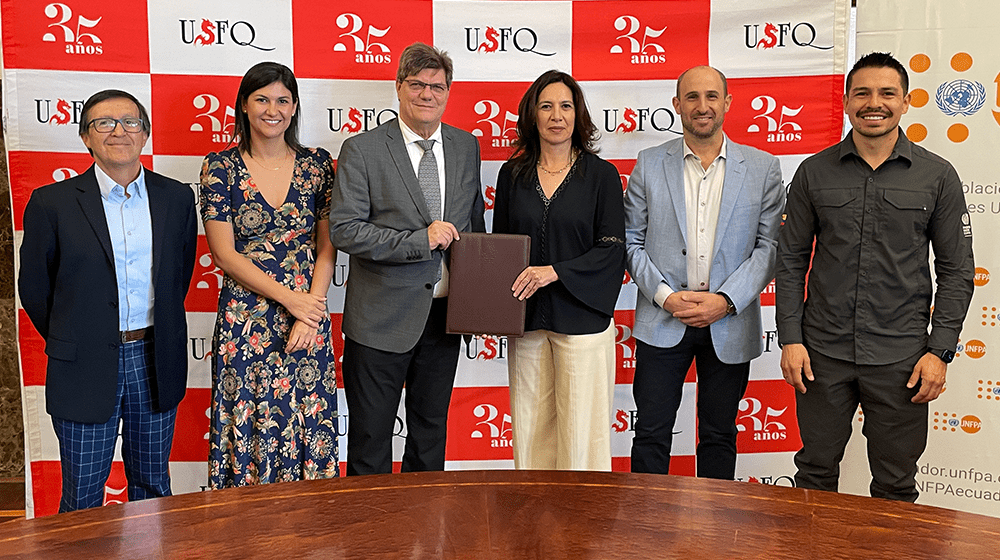The University San Francisco de Quito (USFQ) and the United Nations Population Fund (UNFPA) have signed a memorandum of understanding establishing a strategic alliance to strengthen the generation, analysis, and dissemination of high-quality data.
The agreement encompasses the following key areas of cooperation: development and implementation of research projects; capacity building in data analysis and management; implementation of information management systems and improvement of data quality; development of indicators and metrics for monitoring and evaluation of public policies; collaboration on initiatives supporting the monitoring and achievement of the Sustainable Development Goals; implementation of technology and innovation for data collection, analysis, and visualization; and mainstreaming human rights, gender, diversity, and inclusion approaches.

Andrea Encalada, Vice Rector of the University San Francisco de Quito, highlighted the importance of this agreement, stating:
"This agreement is of great interest to us, as we are deeply involved in analyzing and generating high-quality data."
She noted that research, both for the sake of knowledge and for applied purposes aligned with the SDGs, is a priority for the university to contribute to the solutions the country needs.
Markus Behrend, UNFPA Representative in Ecuador, emphasized:
"Work focused on population and development is fundamental to ensuring that all people are counted and represented, so that they can enjoy their rights and live full and healthy lives."
He also mentioned that the generation and use of high-quality data is essential to monitor and evaluate public policies, and to follow the Sustainable Development Goals and the Programme of Action of the International Conference on Population and Development.
This partnership will provide:
- More accurate and reliable data: High-quality demographic data will allow for a better understanding of the Ecuadorian population, its needs, and challenges.
- More effective public policies: Data will serve as the basis for designing and evaluating public policies that respond to the needs of the population.
- Greater transparency and accountability: Open and accessible data will allow citizens and decision-makers to monitor progress towards the SDGs.
- Strengthening of institutional capacities: Through training and knowledge exchange, the capacities of both institutions to work with demographic data will be strengthened.






